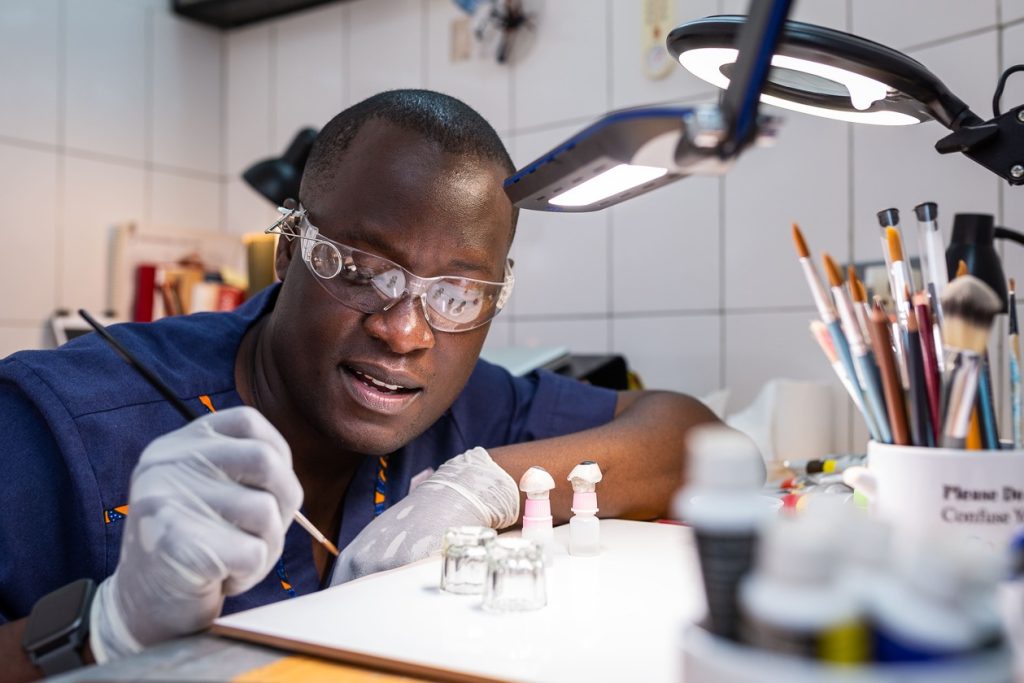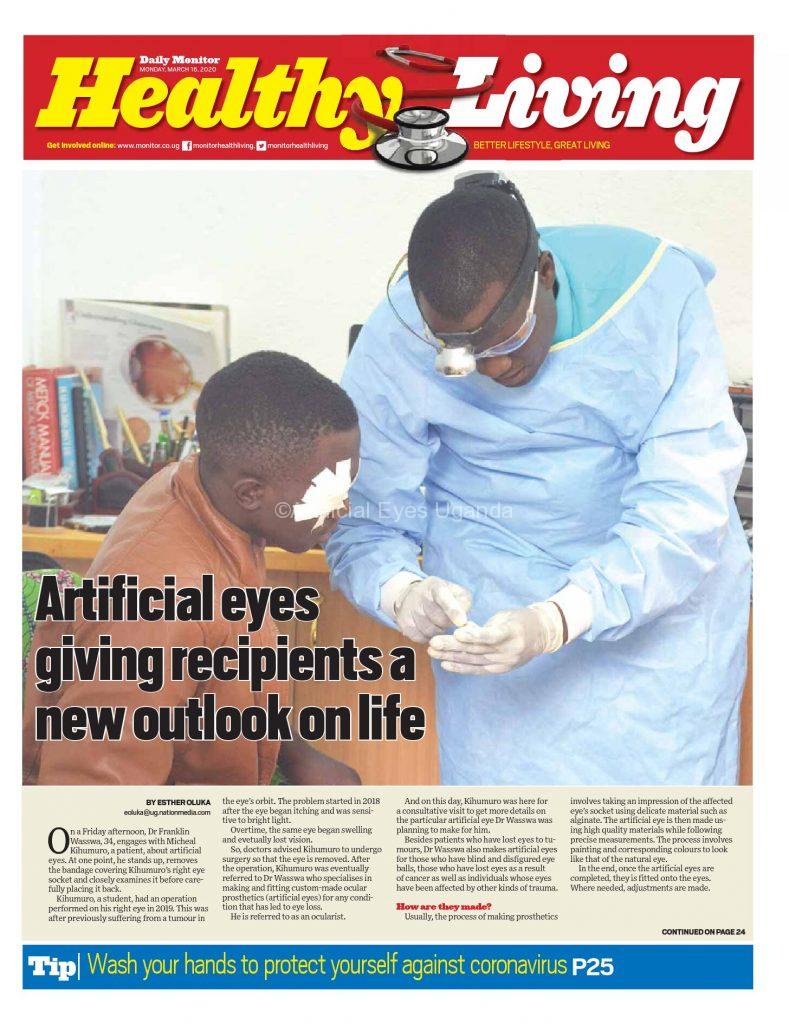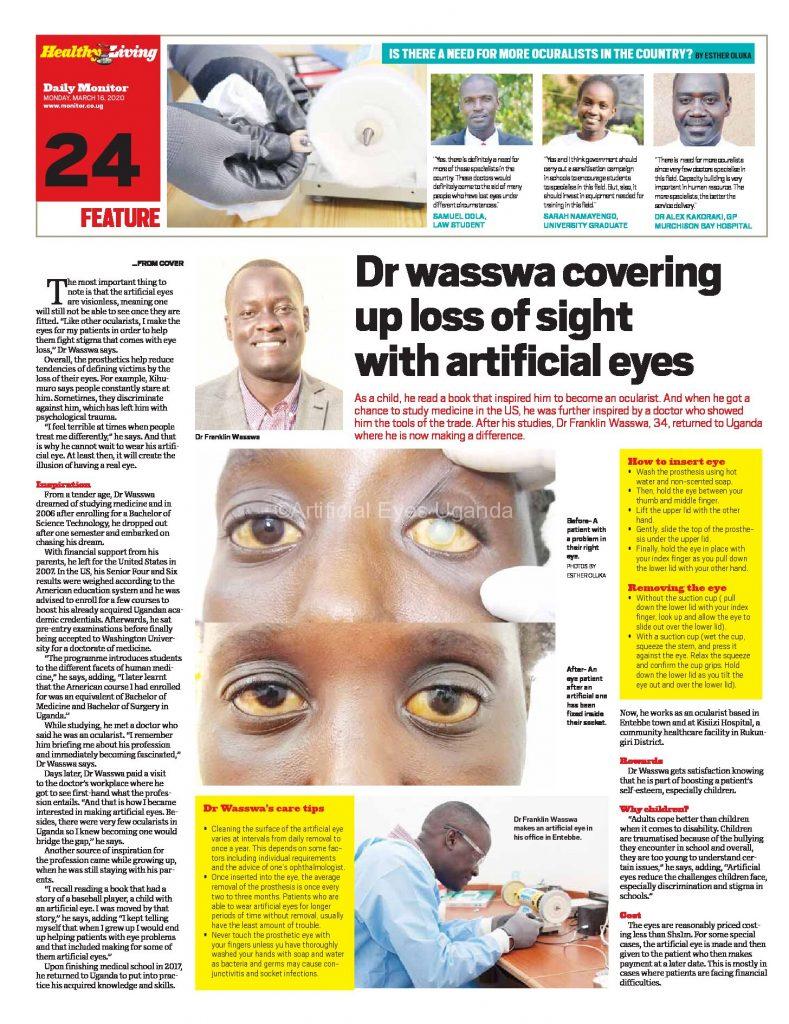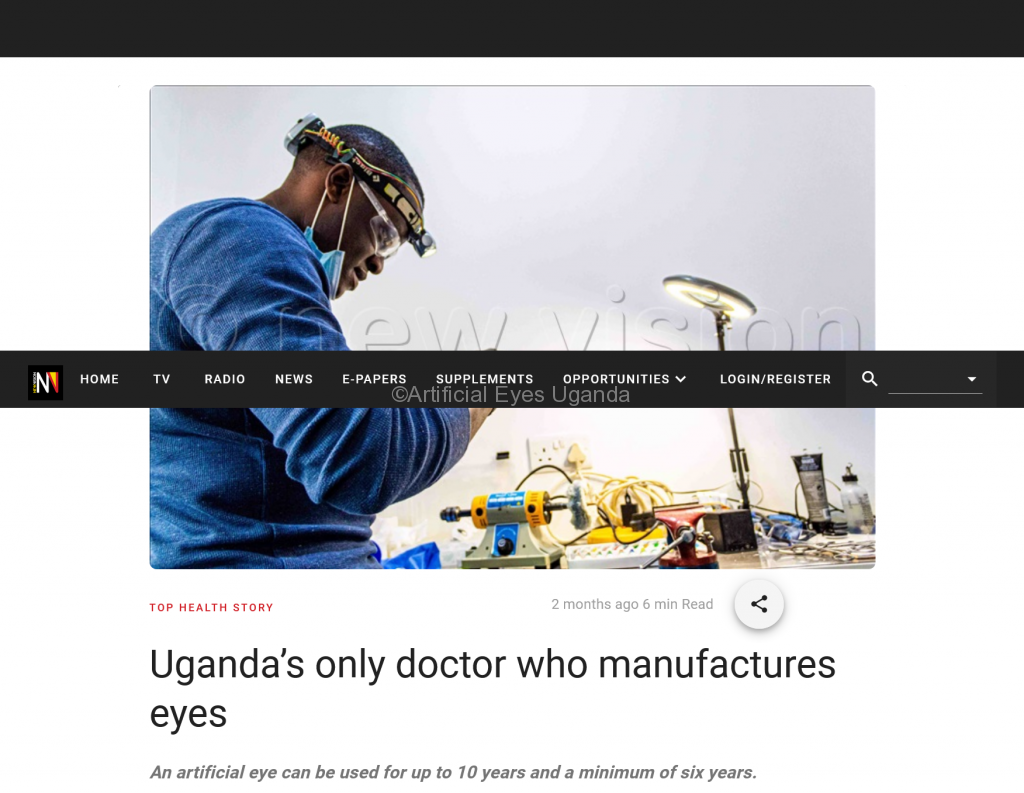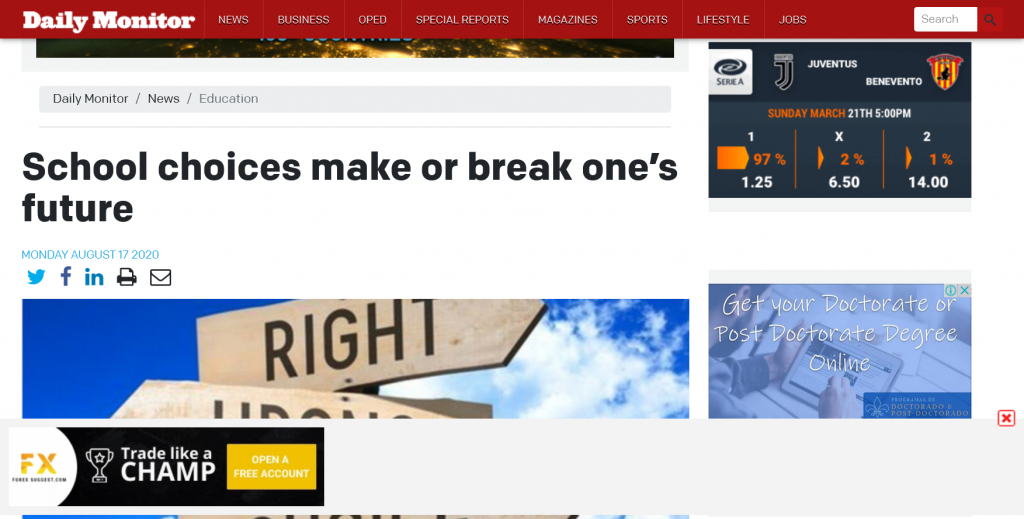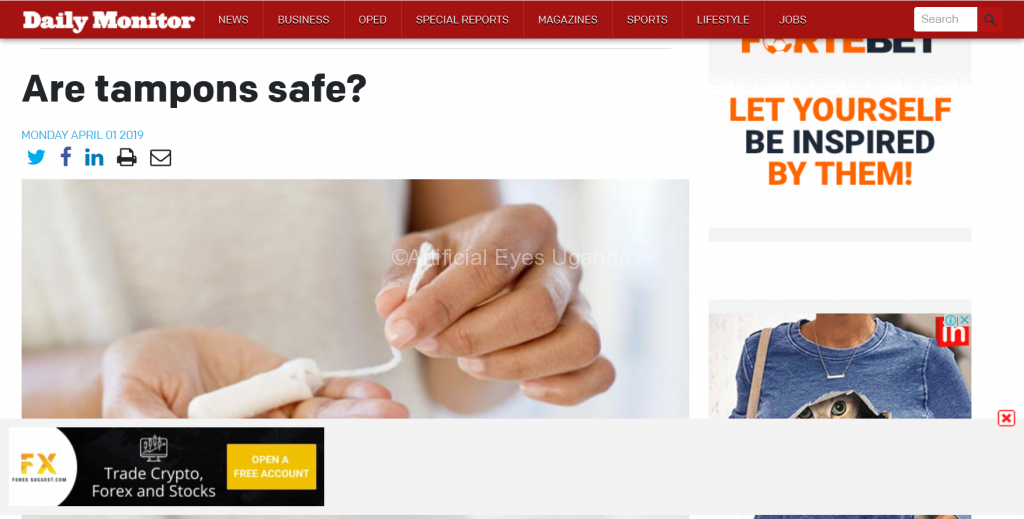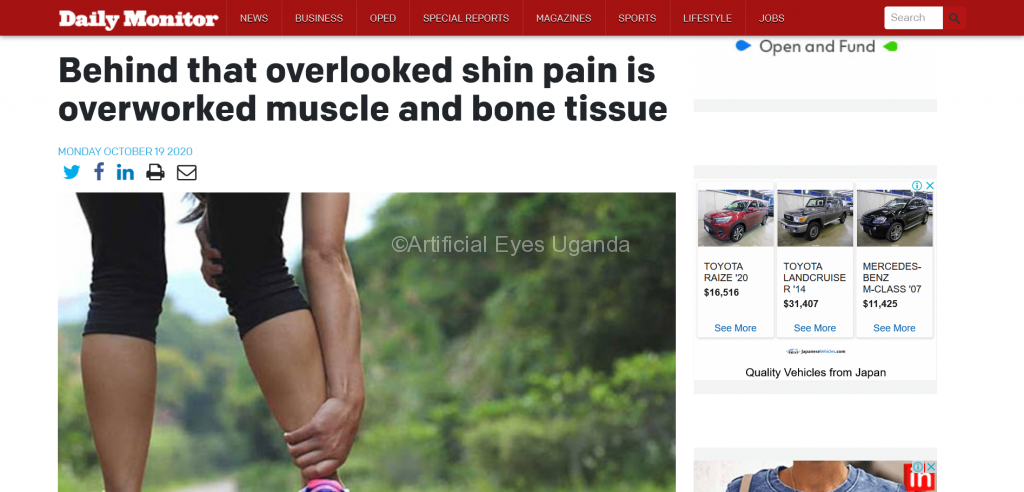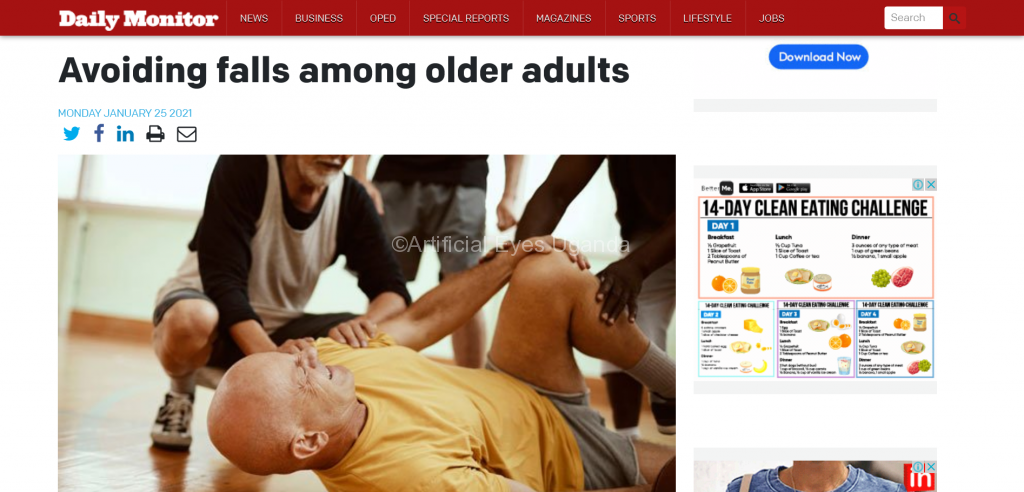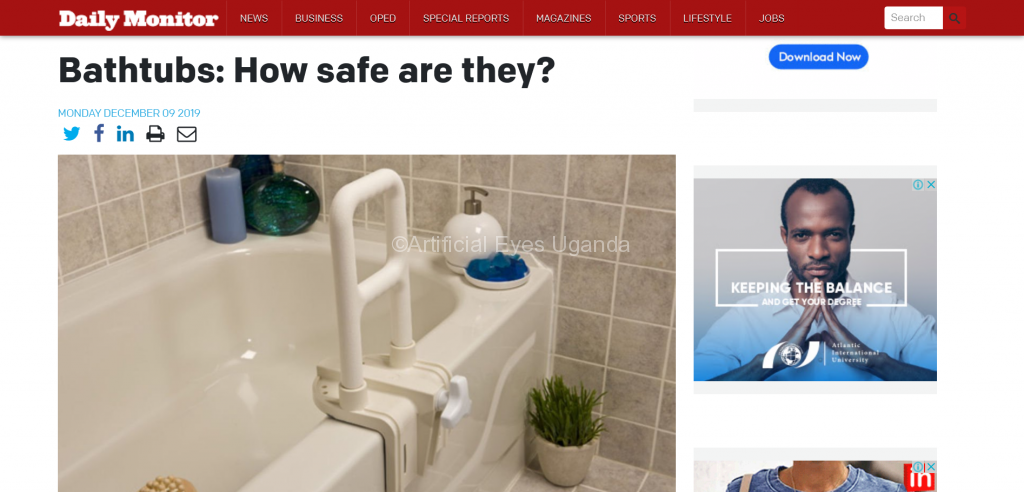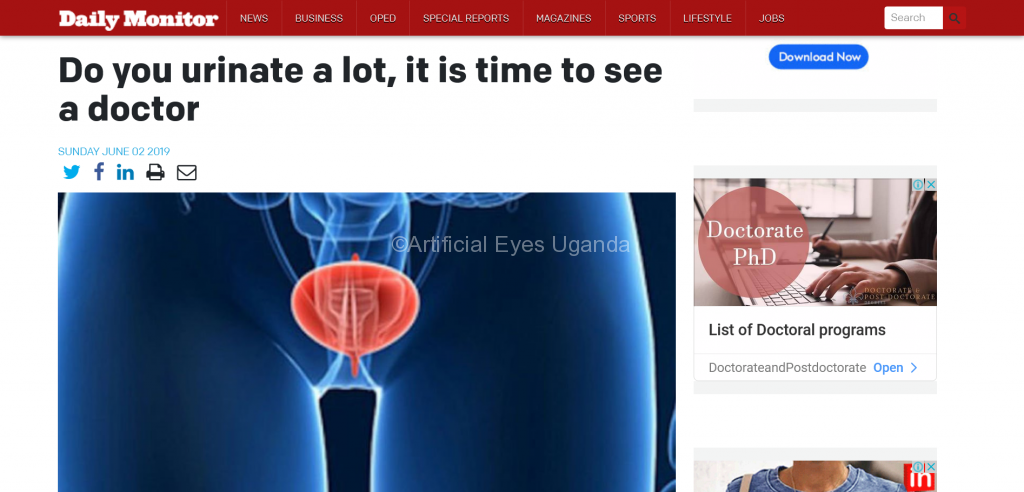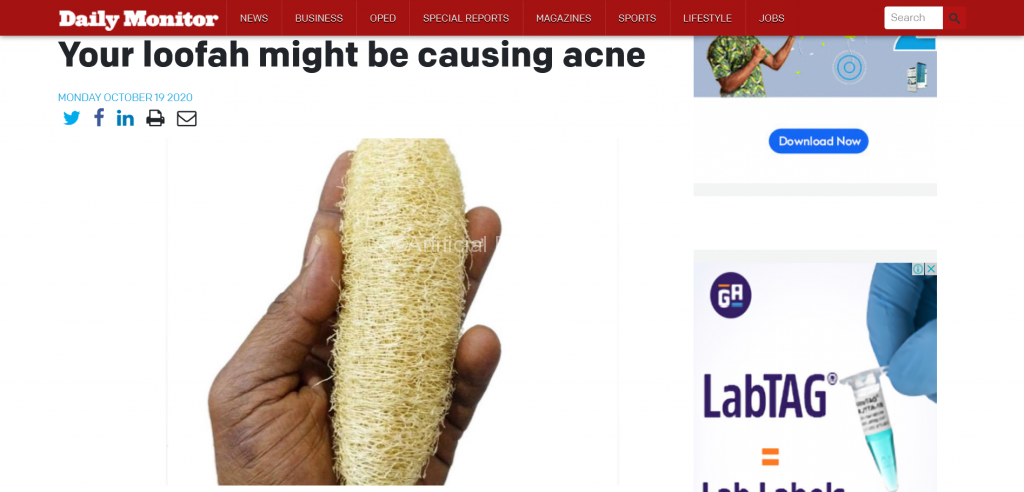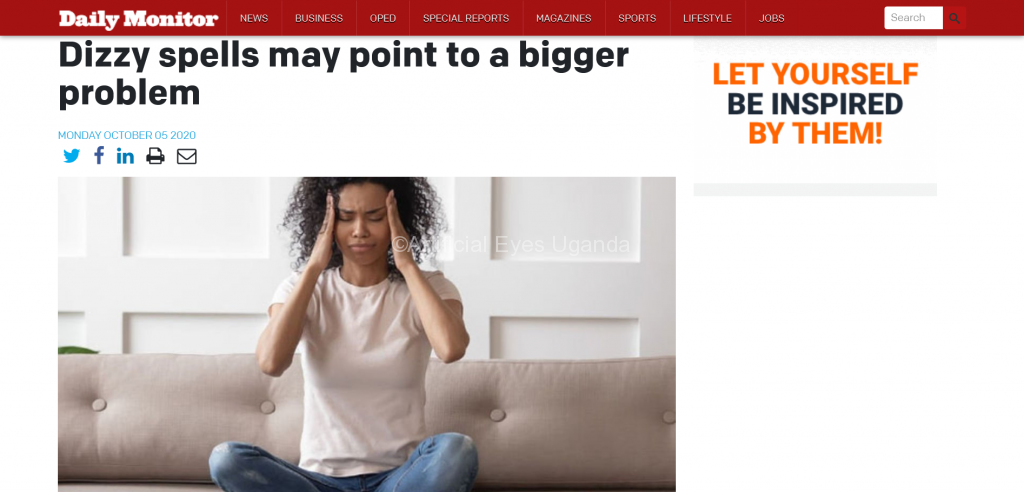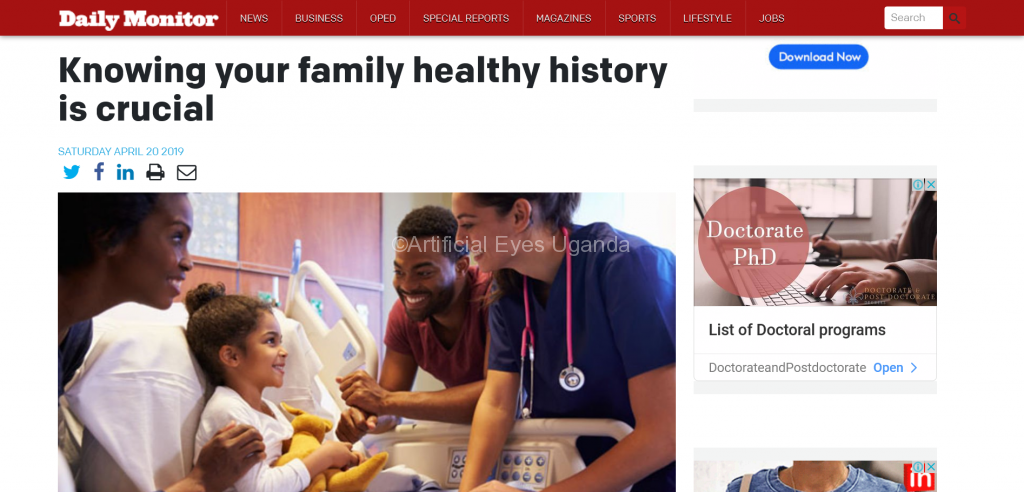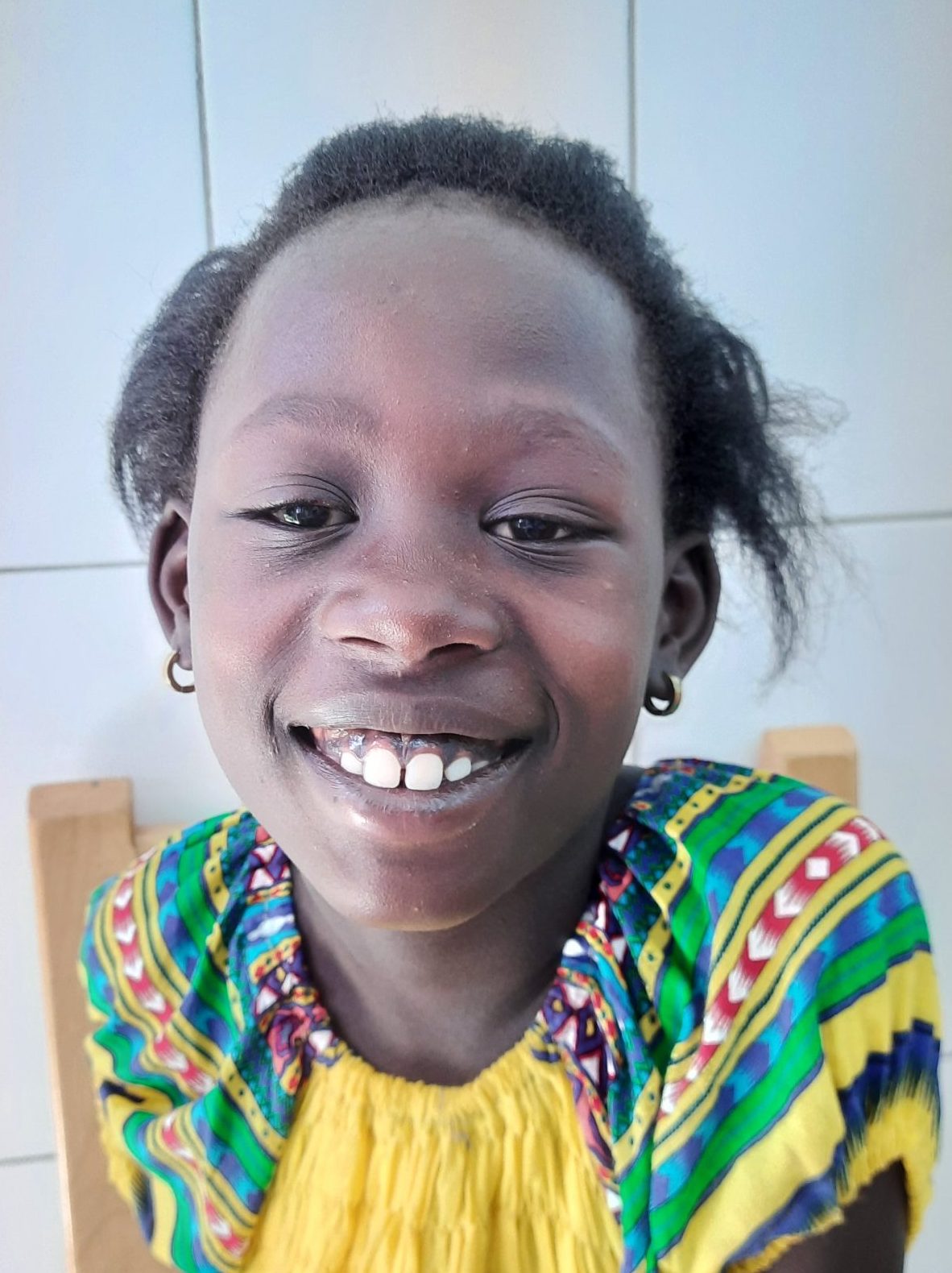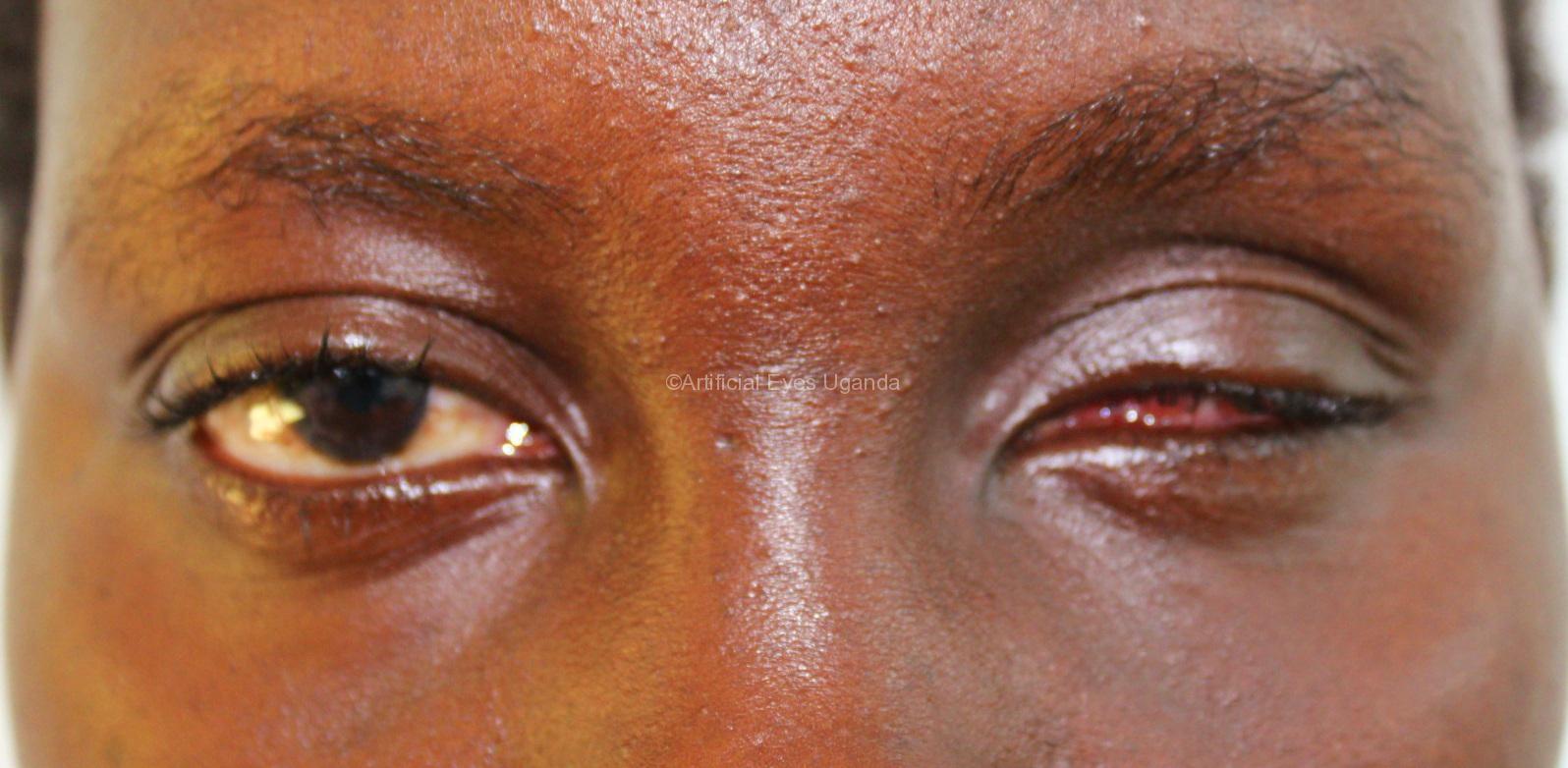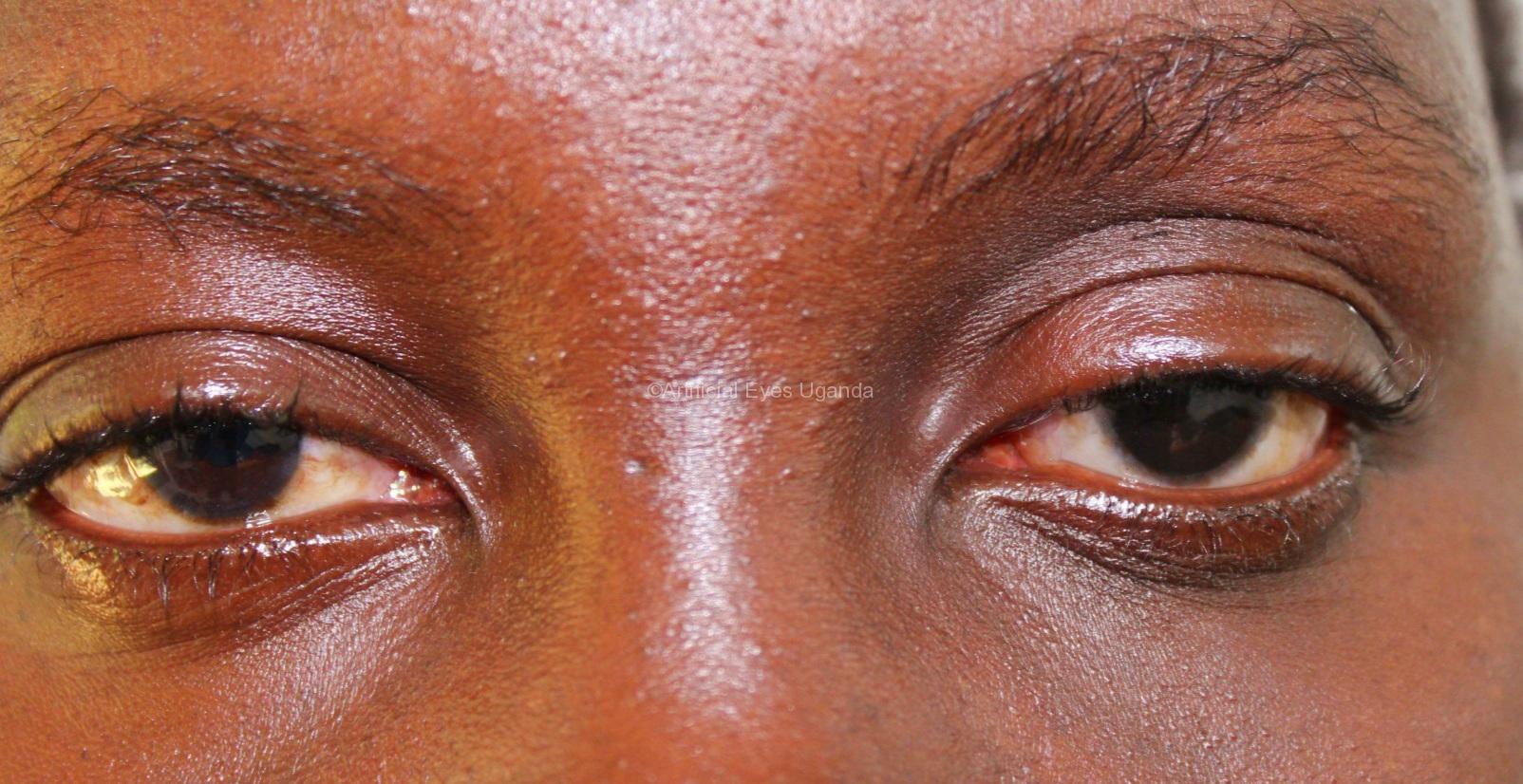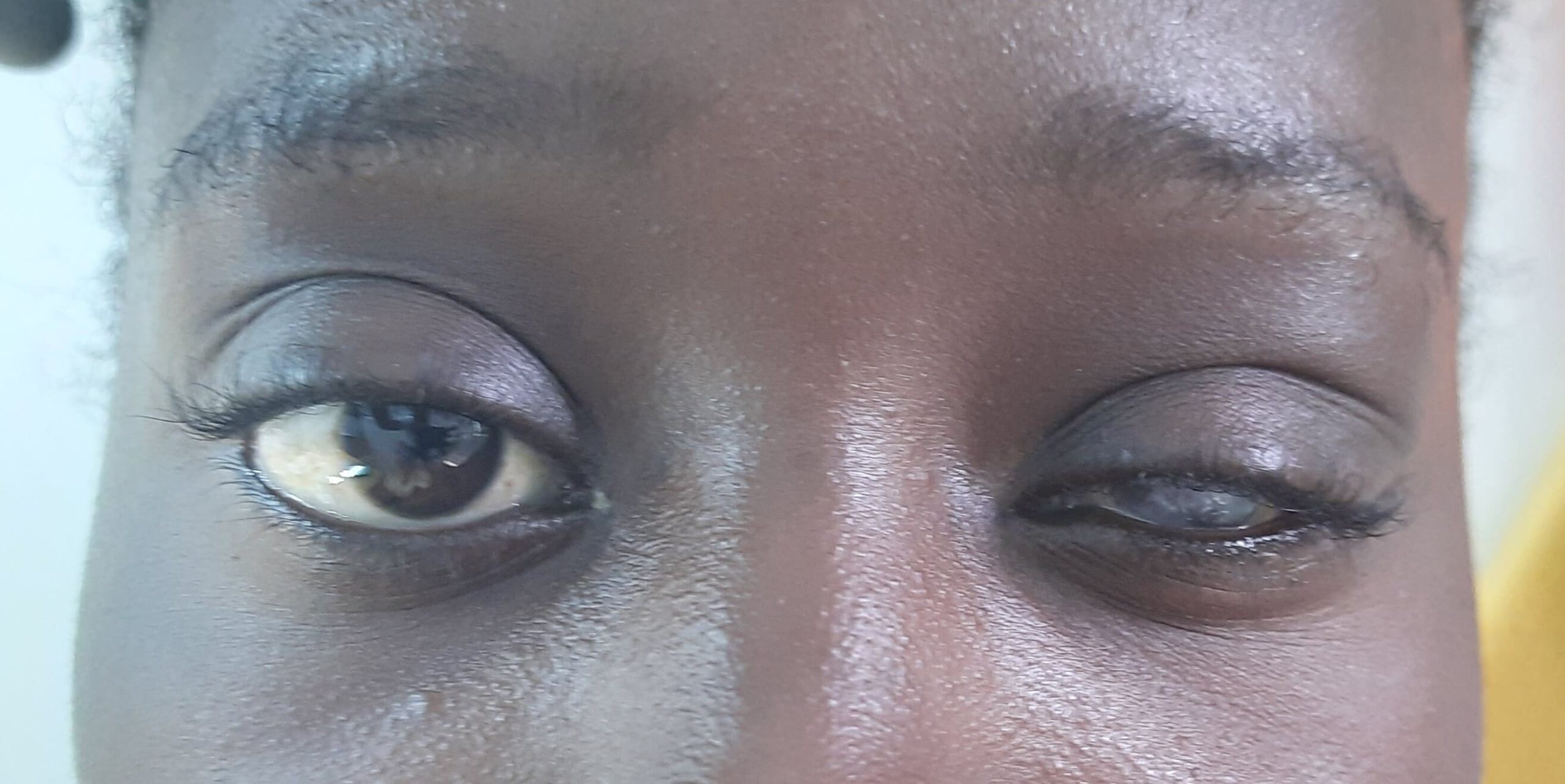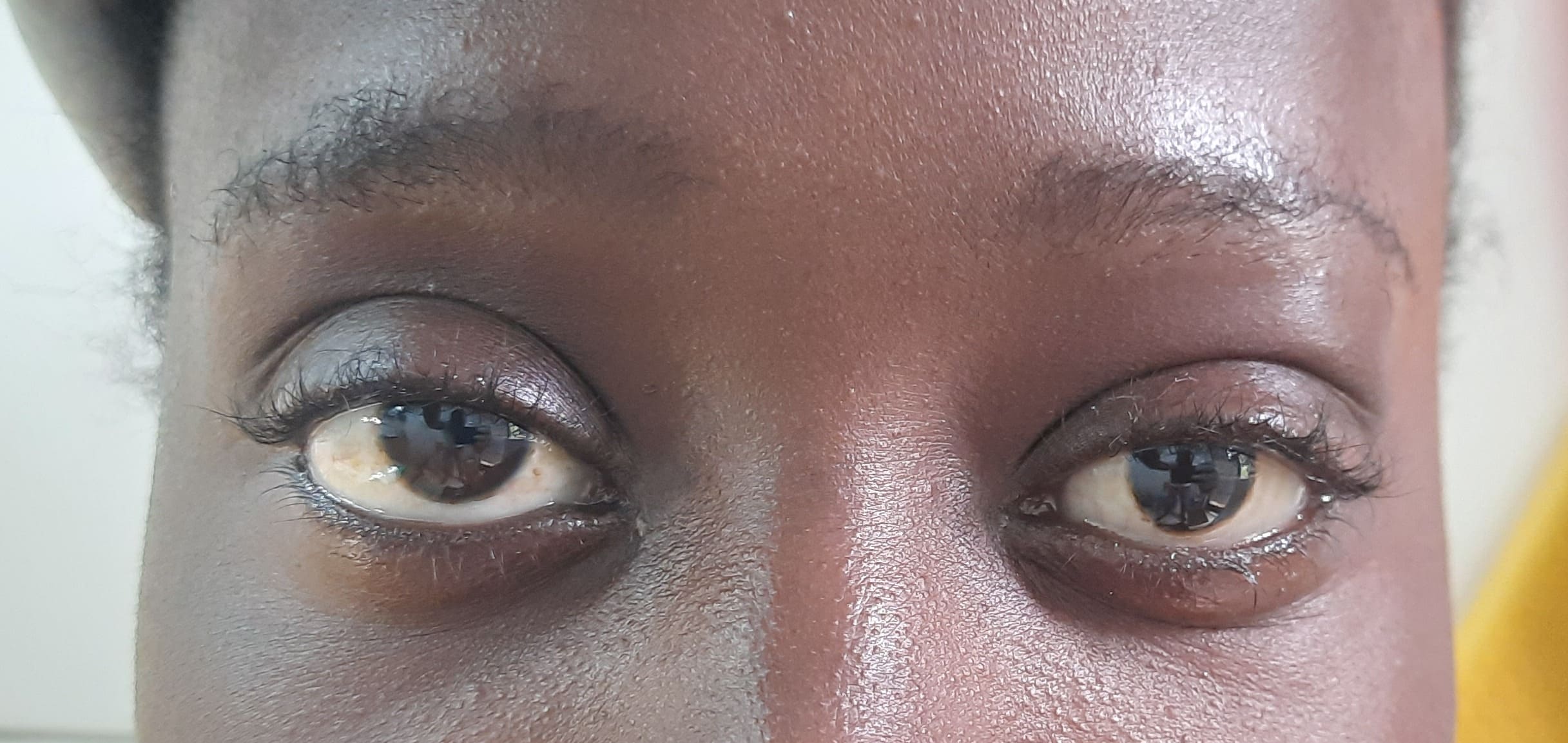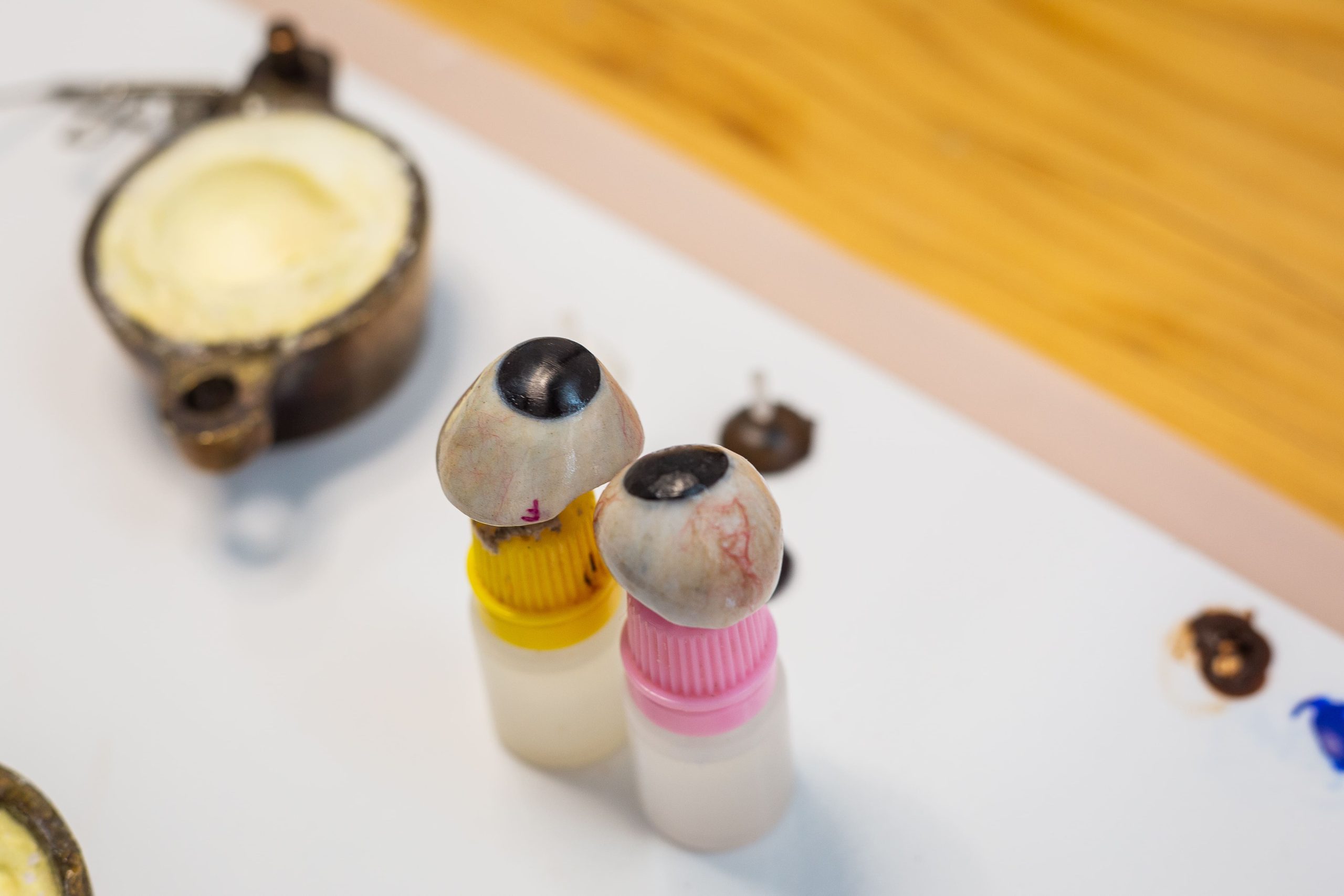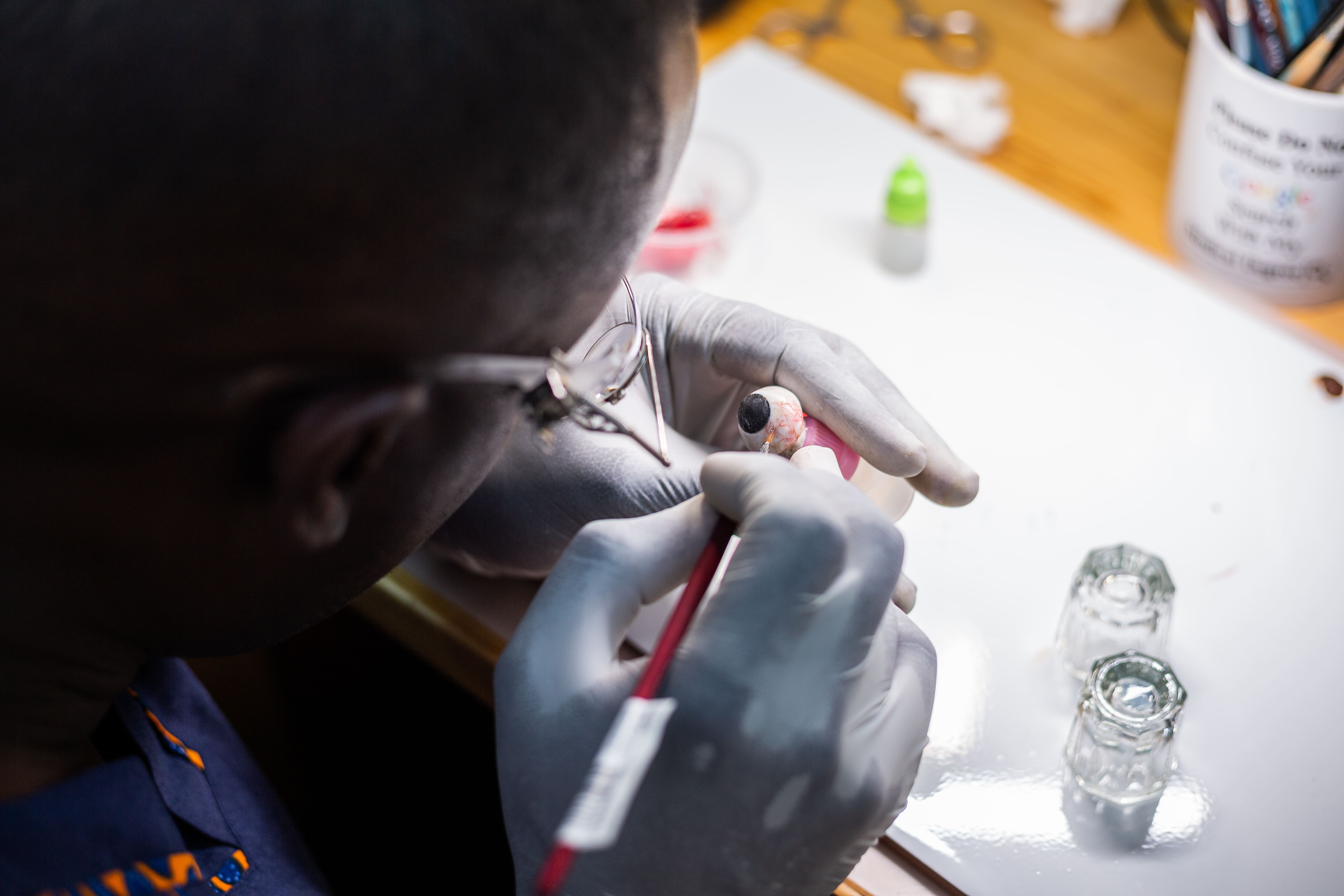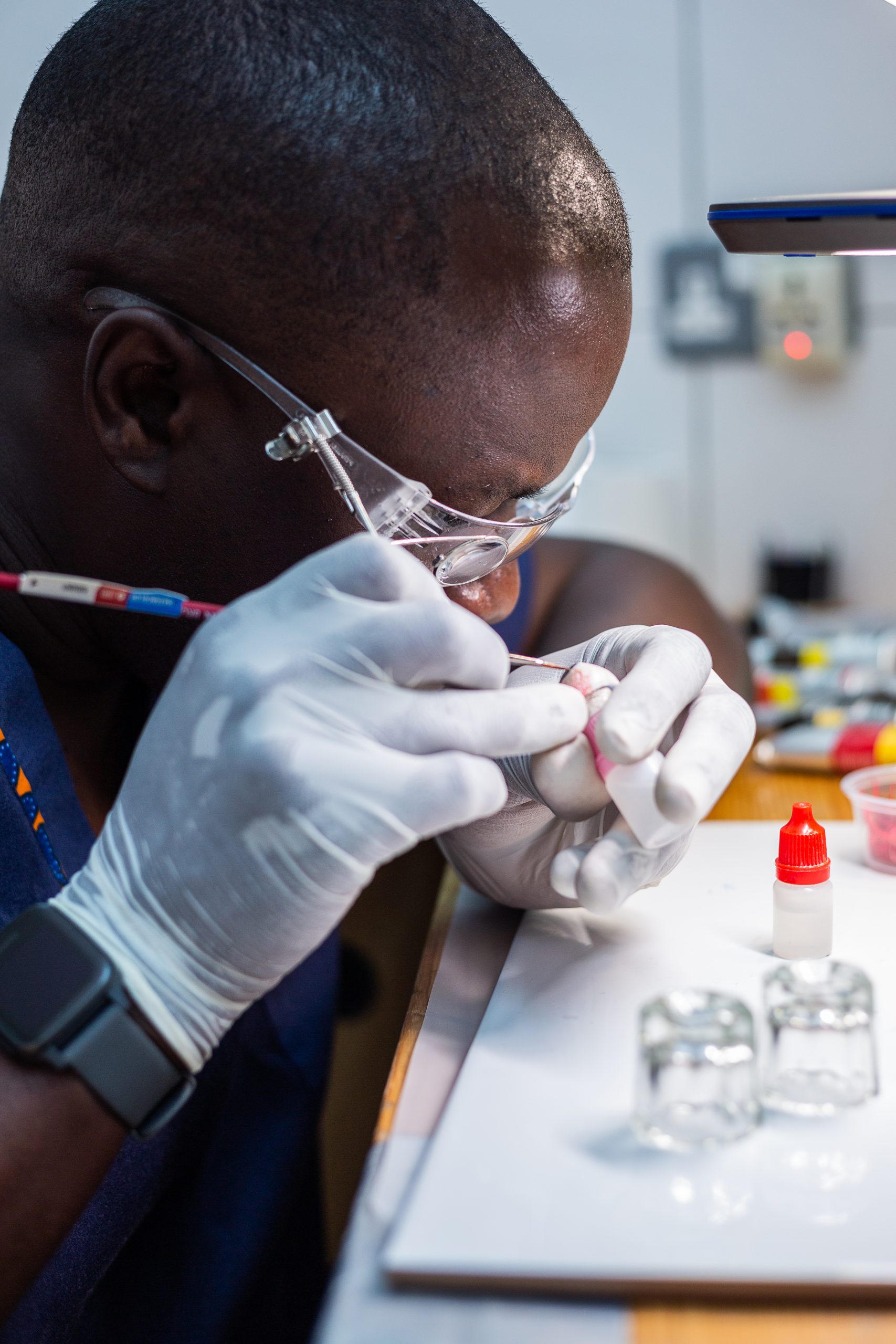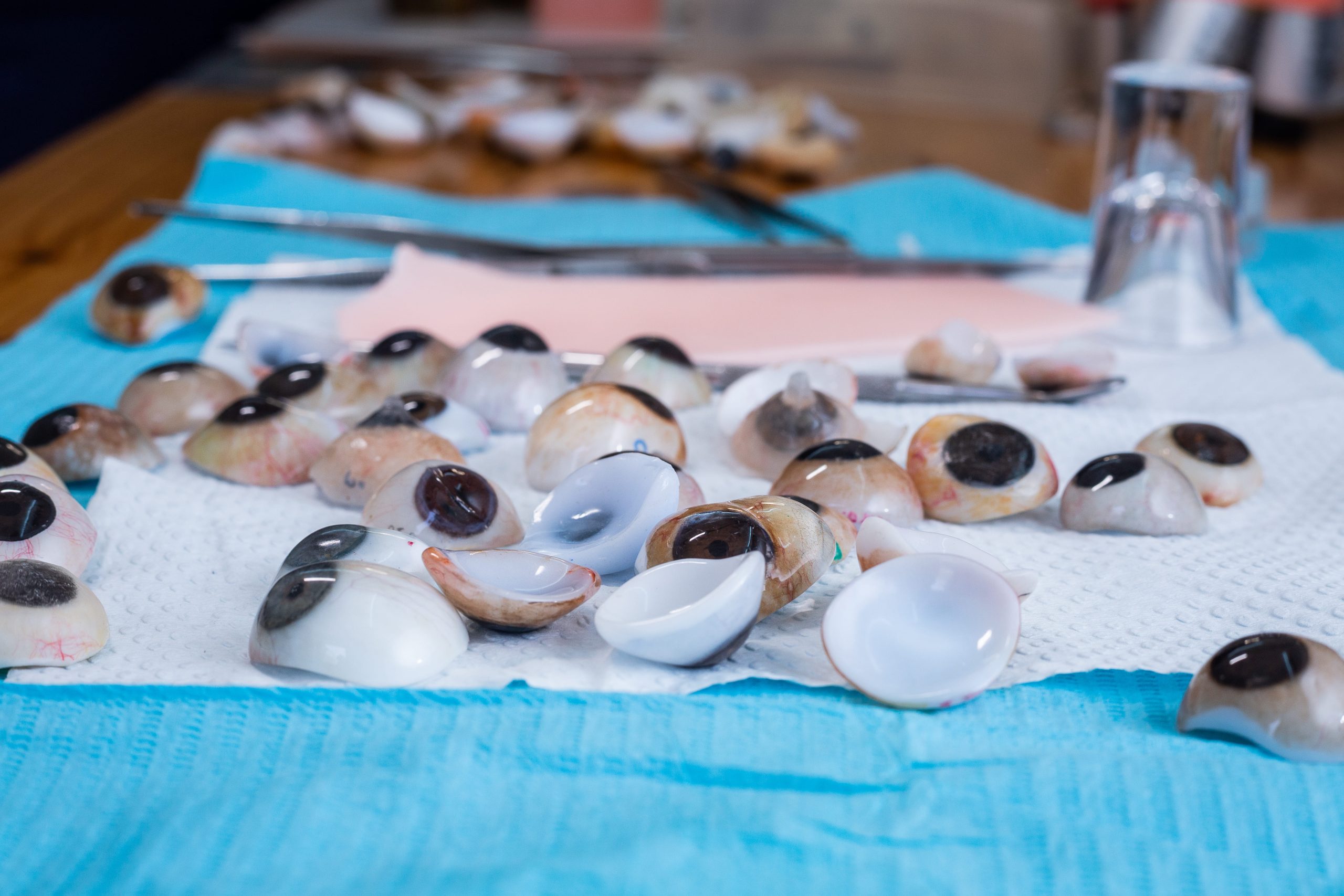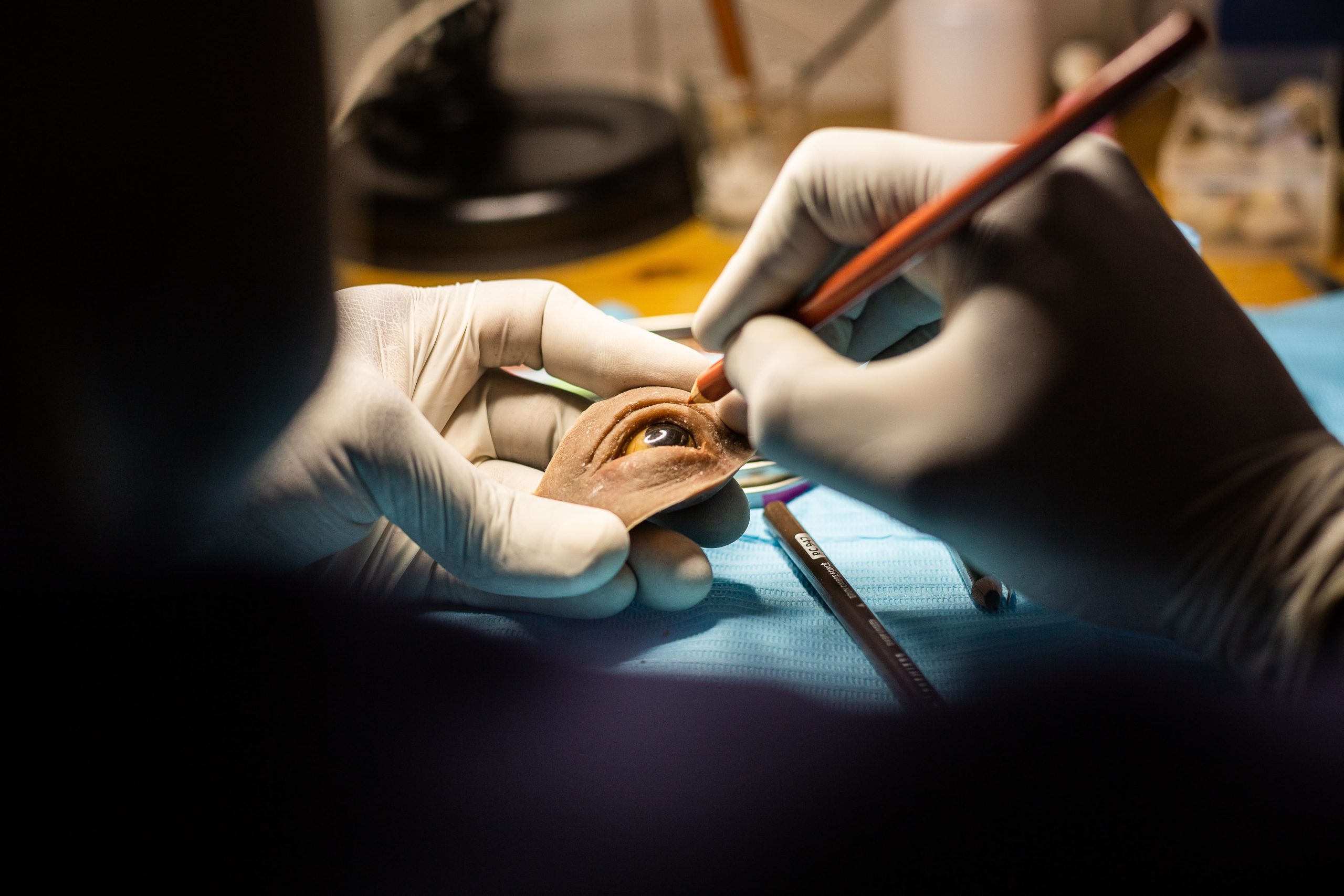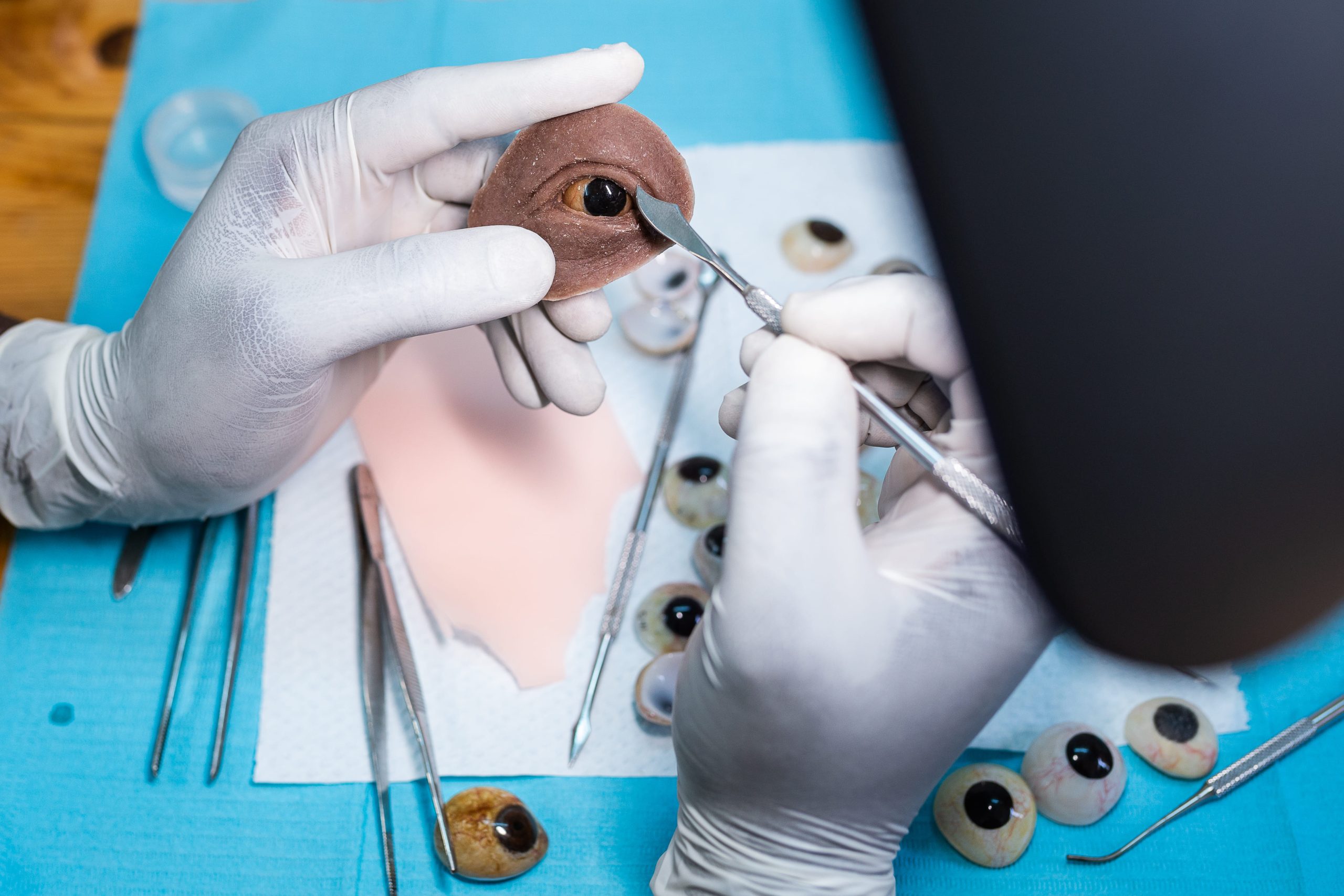Featured Articles & Interviews
LUGANDA PROVERB :- "Amagezi gandi ku mwoyo, ng'omufuuwi w'ennombe" The ideas in my mind are like tunes in the head of the horn-blower, As long as it is not spoken, you cannot know it"
Nature Magazine WHERE I WORK Featured Story
Daily Monitor Featured Story
New Vision Featured Story
Featured Healthy Living Articles
NTV NEWS ENGLISH
NTV Morning Show
NTV LUGANDA NEWS
KFM 93.3 INTERVIEW

Script
Losing one’s ability to see can be very difficult to accept.
Some of the most common fears include your dependability on others to perform even trivial daily life tasks.
Feeling handicapped in doing things others can do around you effortlessly can push you towards embarrassment as well as anxiety.
Dr. Franklin Wasswa, the country’s only Ocularist is helping many Ugandans who have lost their eyes to cope by improving their confidence level.
We speak to him this morning about making artificial eyes.
OCULARIST FEATURE
//////////
Opening sound of Micheal
Michael Kiwumulo is a 19 year old student of nursing who lost his sight after what started as a simple itch in one eye.
In December last year Kiwumulo underwent surgery and was advised to get an artificial eye.
According to Dr. Franklin Wasswa, just like is the case for many Ugandans, the process was too costly for this young man to afford considering that he had already undergone several surgeries.
Kiwumulo admits that the process of acquiring an artificial eye is a complicated one.
He is currently using conformers and according to the doctor he still has to undergo many procedures.
Such services are however limited because currently Dr. Franklin Wasswa is the country’s only Ocularist.
He tells me he was inspired by a magazine that was bought by his mother.
His journey as an Ocularist stay in Chicago where as a young general practitioner, he met someone who was doing this job of making artificial eyes.
By what exactly entails his job?
All is not rosy for Dr. Wasswa. He has had some low moments too in his career and one of them was when he returned to Uganda and was hit by the numerous challenges in the country’s health sector.
This forced him to go back but gave him an opportunity to learn more about the trade.
The biggest challenge he says is the difficulty and high cost of getting the necessary materials and equipment, which in-turn makes the service unaffordable to many.
The other is the limited number professionals in this field.
Also, since there’s no clear-cut course for ocularists, it takes a lot of patience for one to acquire the skills.
He thus plans to train Kiwumulo who has expressed interest in acquiring the skill and is already undergoing nursing training.
He then takes me through the process of making and artificial eye how long it takes him to have it ready for use.
I then ask if this artificial eye can actually move and even function normally.
And does it expire? I ask him.
Dr. Wasswa has big dreams and plans for this business
Finally, he tips the public of eye care to prevent vision loss.
This report was compiled by KFM’s Shamim Nateebwa
Pride Of Entebbe
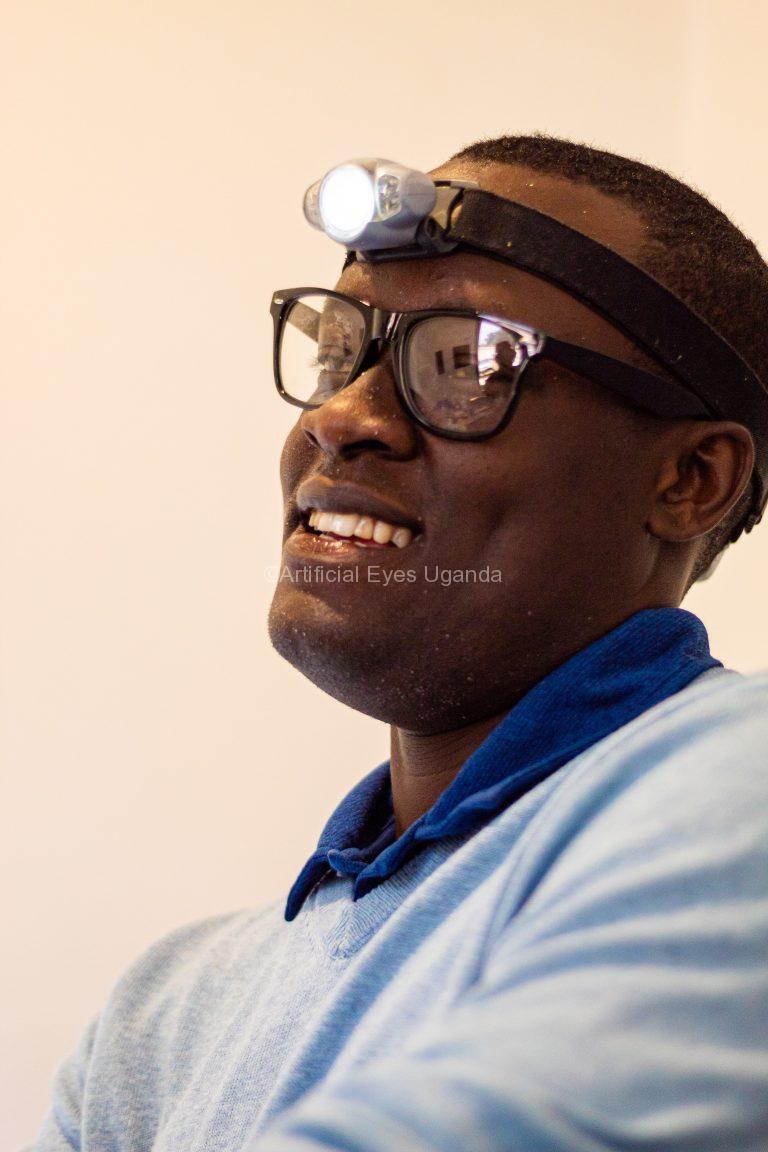
ABOUT US
We take great passion in creating solutions that can give you so much confidence and encouragement in a situation that can at times be very difficult. We are all highly motivated professionals, constantly working to produce prostheses, the best each time we do it. We remain well connected with those in our industry, to evolve in the best we can be while learning from others.
FOLLOW US
ALL CONTACTS
- Queen's Road, Entebbe
- +256754077479
- contact@artificialeyesuganda.com
- Only On Appointment
- P.O.Box 738, Entebbe, Wakiso, Uganda
- Artificial Eyes - Copyright 2021

